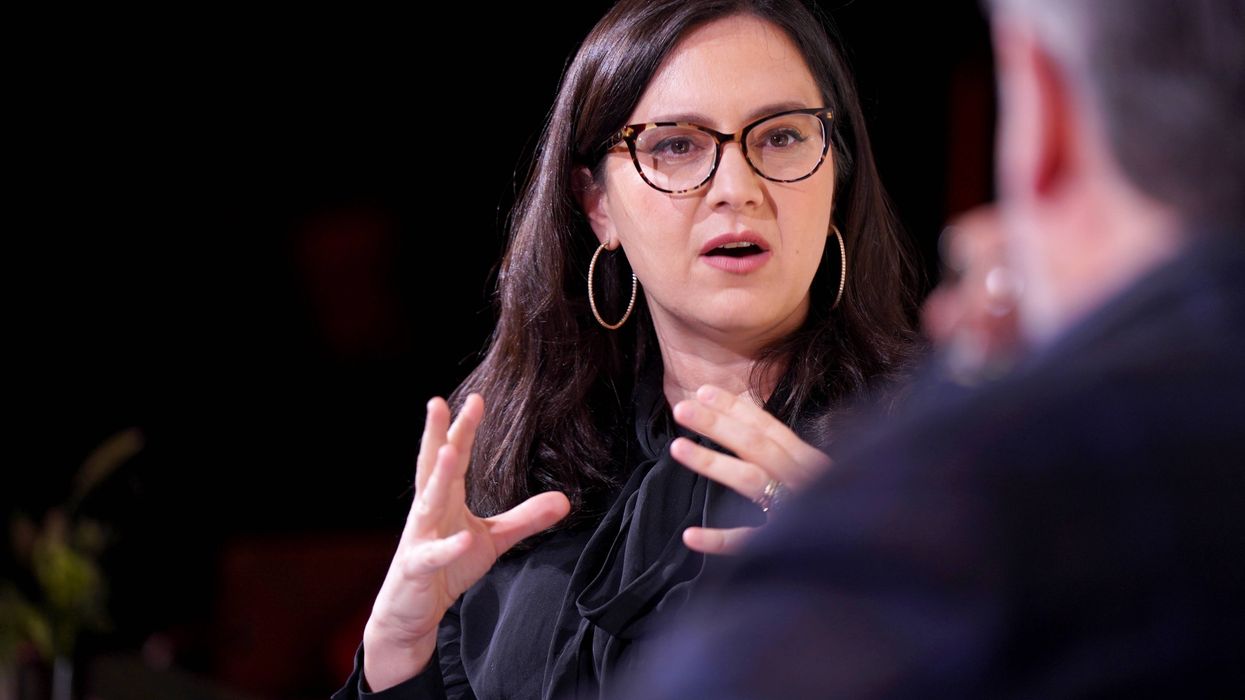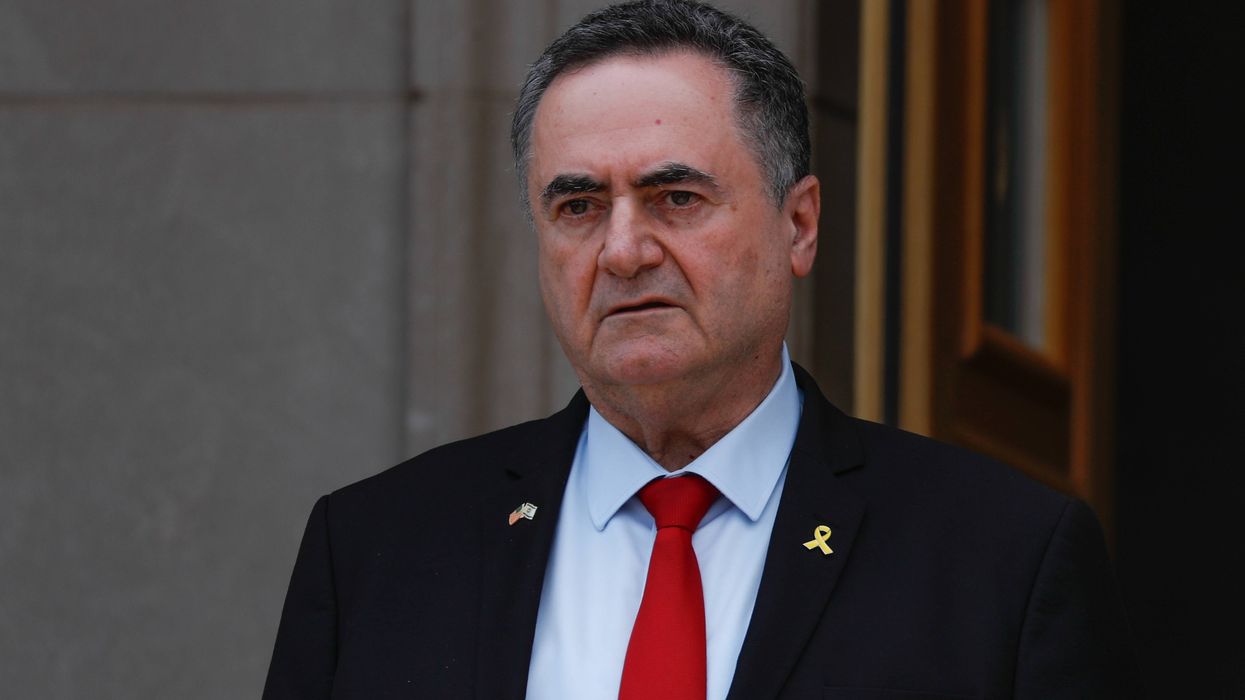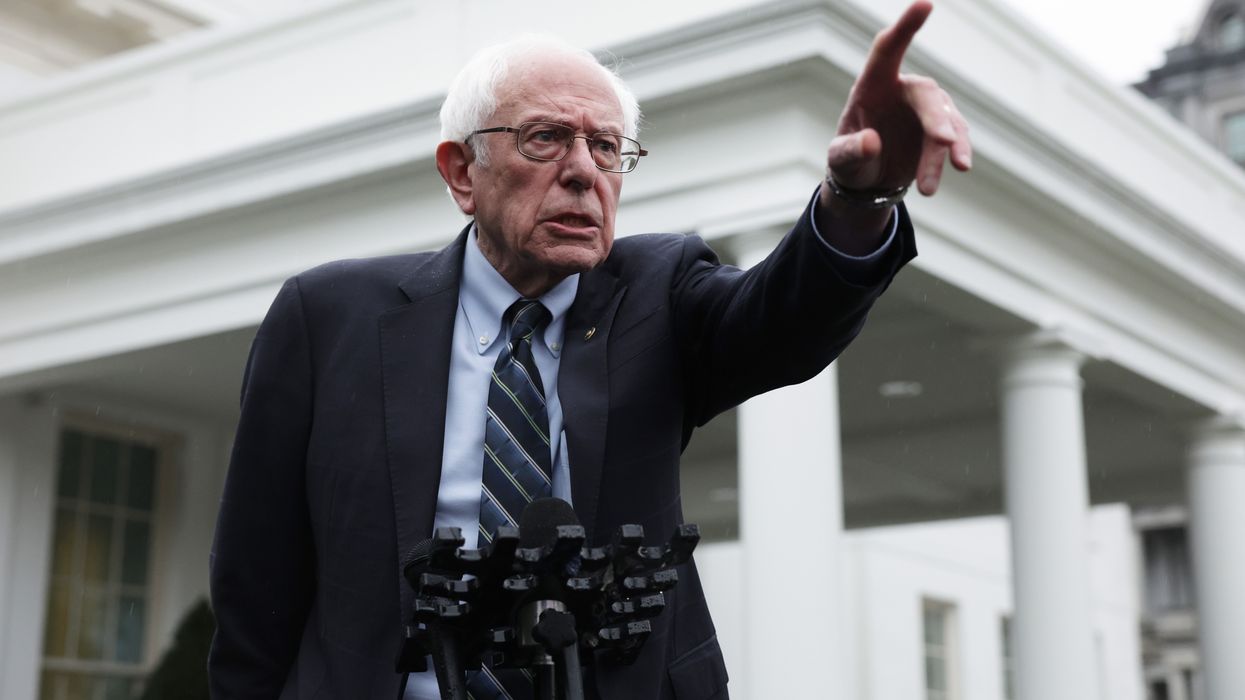August, 16 2010, 09:38am EDT

For Immediate Release
Contact:
Charles Hall, Justice at Stake, 202-588-9454, chall@justiceatstake.org; or
Jeanine
Plant-Chirlin, Brennan Center for Justice,
at 212-998-6289 or jeanine.plant-chirlin@nyu.edu.
Is Justice for Sale?
Report Cites Exploding Costs, Role of Special Interests in State Court Elections; Justice Sandra Day O’Connor Warns of ‘Crisis of Confidence’
WASHINGTON
Spending on state Supreme Court elections has more than doubled
in the past decade, from $83.3 million in 1990-1999 to $206.9 million in
2000-2009, and deep-pocketed special interests play a dominant role in choosing
state jurists, according to a report released today.
For
more than a decade, partisans and special interests of all stripes have grown
more organized in their efforts to tilt the scales of justice their way. This
surge in spending-much of it funneled through secret channels-has
fundamentally transformed state Supreme Court elections.
The
report, "The New Politics of Judicial Elections, 2000-2009: Decade of
Change," is the first comprehensive study of spending in judicial
elections over the past decade. It was released today by the Justice at Stake
Campaign, the Brennan Center for Justice at NYU School of Law, and the National
Institute on Money in State Politics.
In
a foreword, Sandra Day O'Connor, retired U.S. Supreme Court Justice, warned
that elected judges are widely seen by the public as beholden to campaign benefactors
who sometimes spend millions to sway court races.
"This
crisis of confidence in the judiciary is real and growing," Justice
O'Connor warned. "Left unaddressed, the perception that justice is
for sale will undermine the rule of law that the courts are supposed to
uphold."
An
Executive Summary of the report is
available here. Among the report's key findings:
-
Spending
records were repeatedly shattered nationally and by state throughout the
decade. Candidates raised $206.9 million in 2000-2009, compared with $83.3
million in the 1990s. Twenty of the 22 states that hold at least some
competitive elections for judges had their most expensive election ever in the
last decade. -
A
select group of "super spenders" is outgunning small donors. In the
29 costliest elections in 10 states, the top five spenders each averaged
$473,000 per election to install judges of their choice, while all other contributors
averaged only $850 apiece. -
Judicial
elections are increasingly focusing not on competence and fairness, but on
promising results in the courtroom after election day. The tort reform wars
have driven this trend, with a half-dozen national business-funded groups, and
leaders of such corporate giants as Home Depot and AIG insurance, squaring off
against plaintiffs' attorneys and unions. -
A
TV spending arms race continues to escalate, creating a need for money that
only special interests can satisfy. In 2007-08, $26.6 million was spent on
Supreme Court TV ads, the costliest two-year ad cycle since tracking began in
2000. For the decade, supreme court candidates, special-interest groups and
political parties spent an estimated $93.6 million on TV ads. -
Special
interests are committed to dismantling spending limits, eliminating merit
selection of judges, and keeping campaign spending secret by assaulting decades
of disclosure laws. A campaign is underway to persuade federal courts to
downplay the Constitution's due process guarantee by reinterpreting the
he First Amendment to gut and weaken federal and state election laws. -
Many
judicial election spenders, including plaintiffs' lawyers and
corporations, have a passion for secrecy-using shell organizations to
keep their role out of the public eye. Such strategies are likely to continue
even after Citizens United, a Supreme Court decision that allowed
corporate and union spending in elections. This could make a true accounting of
special-interest spending impossible in 2010 and beyond.
"The
next decade will be a perilous time for fair courts," said Bert
Brandenburg, executive director of the Justice at Stake Campaign, a legal
reform group based in Washington. "For more than two centuries, Americans
have counted on judges to ignore political pressure. But the flood of
special-interest money is changing that. Without reforms, there is a real
risk of irreversible damage to public confidence in our courts."
According
to numerous polls taken throughout the decade, public concern is
widespread and bipartisan. Three in four Americans believe campaign cash
can affect courtroom decisions, and nearly half of state judges polled-46
percent-agree.
The
report is authored by James Sample, professor at Hofstra University Law
School, Adam Skaggs and Jonathan Blitzer of the Brennan Center for Justice,
Linda Casey of the National Institute on Money in State Politics. Charles Hall
of the Justice at Stake Campaign is the Editor.
"The
issues detailed in this report transcend America's partisan
divisions," said Sample, the report's lead author. "At
least when it comes to the courts, concern over the influence of green is not a
matter of red versus blue."
"This
explosion in spending fuels the growing public concern that judges will favor
the biggest spenders," said Skaggs, counsel at the Brennan Center.
"And with the recent U.S. Supreme Court ruling in Citizens United,
the amount of money flowing into judicial elections isn't likely to
diminish any time soon. That will mean increasing special interest pressures on
judges - and increasing public concern that justice is for sale."
One
positive cited in the report was a growing public desire to insulate courts
from special-interest money. States like Michigan, New Mexico, North Carolina,
West Virginia, and Wisconsin are responding to the new politics of judicial
elections with tools like public financing of judicial elections, consideration
of new judicial appointment/retention
election systems, and tougher ethics rules forcing judges to sit out cases
involving financial benefactors.
Justice
O'Connor, who has championed court reforms since retiring from the U.S.
Supreme Court in 2006, said in her letter introducing the report, "We all
have a stake in ensuring that courts remain fair, impartial, and independent.
If we fail to remember this, partisan infighting and hardball politics will
erode the essential function of our judicial system as a safe place where every
citizen stands equal before the law."
The Brennan Center for Justice is a nonpartisan law and policy institute. We strive to uphold the values of democracy. We stand for equal justice and the rule of law. We work to craft and advance reforms that will make American democracy work, for all.
(646) 292-8310LATEST NEWS
YouTube, TikTok Deleted ‘60 Minutes’ CECOT Clips Amid Paramount Takedown Push
The segment on the notorious torture prison—where the Trump administration has been unlawfully deporting Venezuelans—went viral on social media after being inadvertently aired in Canada.
Dec 23, 2025
Websites including YouTube and TikTok this week removed posts of a CBS News "60 Minutes" segment on a notorious prison in El Salvador, where Trump the administration has been illegally deporting Venezuelan immigrants, after being notified that publishing the clip violated parent company's copyright.
The segment on the Terrorism Confinement Center (CECOT)—which was intended to air on Sunday's episode of "60 Minutes"—was pulled by right-wing CBS News editor-in-chief Bari Weiss, who claimed that the story "was not ready" for broadcast, despite thorough editing and clearance by key company officials.
“Our story was screened five times and cleared by both CBS attorneys and Standards and Practices," said "60 Minutes" correspondent Sharyn Alfonsi, who reported the segment. “It is factually correct. In my view, pulling it now, after every rigorous internal check has been met, is not an editorial decision, it is a political one.”
The segment—which can still be viewed on sites including X—was shared by social media users after a Canadian network received and broadcast an original version of the "60 Minutes" episode containing the CECOT piece prior to CBS pulling the story. The social media posts containing the segment were reportedly removed after CBS parent company Paramount Skydance filed copyright claims.
A CBS News representative said that “Paramount’s content protection team is in the process of routine take down orders for the unaired and unauthorized segment.”
Weiss—who also founded and still edits the Paramount Skydance-owned Free Press—has faced criticism for other moves, including presiding over the removal of parts of a previous "60 Minutes" interview with President Donald Trump regarding potential corruption stemming from his family’s massive cryptocurrency profits.
On Tuesday, Axios reported that Weiss is planning a broad overhaul of standards and procedures at the network, where she was hired by Paramount Skydance CEO and Trump supporter David Ellison in October, despite a lack of broadcasting experience.
Keep ReadingShow Less
Israeli Defense Minister Tries to Walk Back Vow to 'Never Leave Gaza,' Build Settlements
The remarks drew critical responses, including from other Israelis and the White House.
Dec 23, 2025
Israeli Defense Minister Israel Katz "said the silent part out loud" on Tuesday, then promptly tried to walk back his comments that his country would not only never leave the Gaza Strip, but also reestablish settlements in the decimated exclave.
Israel evacuated Jewish settlements in Gaza two decades ago, but some officials have pushed for ethnically cleansing the strip of Palestinians and recolonizing it, particularly since the Hamas-led October 7, 2023 attack and the devastating Israeli assault that followed.
The Times of Israel on Tuesday translated Katz's remarks—made during an event about expanding Beit El, a Jewish settlement in the illegally occupied West Bank—from Hebrew to English:
"With God's help, when the time comes, also in northern Gaza, we will establish Nahal pioneer groups in place of the settlements that were evacuated," he said. "We'll do it in the right way, at the appropriate time."
Katz was referring to the Nahal military unit that, in part, lets youths combine pioneering activities with military service. In the past, many of the outposts established by the unit went on to evolve into full-fledged settlements.
"We are deep inside Gaza, and we will never leave Gaza—there will be no such thing," Katz said. "We are here to defend and to prevent what happened from happening again."
The so-called peace plan for Gaza that US President Donald Trump and Israeli Prime Minister Benjamin Netanyahu announced at the White House in late September notably states that "Israel will not occupy or annex Gaza," and "the Israel Defense Forces (IDF) will withdraw based on standards, milestones, and timeframes linked to demilitarization."
Gadi Eisenkot, a former IDF chief of staff who launched a new political party a few months ago, responded to Katz on social media, writing in Hebrew, "While the government votes with one hand in favor of the Trump plan, it sells myths with the other hand about isolated settlement nuclei in the strip."
"Instead of strengthening security and bringing about an enlistment law that will bolster the IDF, the government, driven by narrow political considerations, continues to scatter irresponsible and empty declarations that only harm Israel's standing in the world," he added.
The White House was also critical of Katz's comments, with an unnamed official saying that "the more Israel provokes, the less the Arab countries want to work with them."
"The United States remains fully committed to President Trump's 20-point peace plan, which was agreed to by all parties and endorsed by the international community," the official continued. "The plan envisions a phased approach to security, governance, and reconstruction in Gaza. We expect all parties to adhere to the commitments they made under the 20-point plan."
Later Tuesday, Katz's office said that "the minister of defense's remarks regarding the integration of Nahal units in the northern Gaza Strip were made solely in a security context. The government has no intention of establishing settlements in the Gaza Strip. The minister of defense emphasized the central principle of border defense in every arena: The IDF is the first and last line of defense for Israel's citizens, and the state of Israel relies for its protection solely on it and on the security forces."
Katz became defense minister in November 2024, just weeks before the International Criminal Court issued arrest warrants for his fired predecessor, Yoav Gallat, and Netanyahu over Israel's assault on and blockade of Gaza. When Katz took on the new role after serving as foreign minister, Palestine defenders accused the prime minister of swapping one "genocidal lunatic" for another.
Israel faces an ongoing genocide case at the International Court of Justice for its mass slaughter of Palestinians in Gaza. As of Tuesday, local officials put the death toll since October 2023 at 70,942, with another 171,195 Palestinians wounded, though global experts warn the true tallies are likely far higher.
At least 406 of those confirmed deaths have occurred since Israel and Hamas agreed to a ceasefire that took effect October 10. In a Monday letter demanding action from the White House, dozens of Democratic US lawmakers noted Israel's "continued bombardment against civilians, destruction of property, and insufficient delivery of humanitarian aid."
Keep ReadingShow Less
Sanders Slams Private Equity Scrooges Ending Paid Holidays for Walgreens Workers
"While the rich get richer, workers are struggling, and your decision to cut workers' paid vacation is making the problem worse."
Dec 23, 2025
Independent US Sen. Bernie Sanders on Tuesday urged the private equity firm that recently acquired Walgreens to reverse its decision to strip hourly workers at the second-largest US pharmacy chain of paid days off on Christmas and other major holidays.
After Sycamore Partners finalized its $10 billion purchase of Walgreens in late August, the pharmacy chain—now headed by CEO Mike Motz—eliminated paid holidays for New Year's Day, Memorial Day, Independence Day, Labor Day, Thanksgiving, and Christmas. Workers were notified of the move, which was first reported by Bloomberg, in October.
The move is typical of what private equity firms—sometimes called vulture capitalists—often do in order to maximize profits. In addition to slashing paid time off and benefits, they often reduce or freeze pay, fire workers, close locations, introduce aggressive sales targets, and reduce job security by replacing full-time positions with hourly or independently contracted workers. Walgreens announced last year that it planned on closing around 1,200 of its roughly 8,000 US stores, citing their struggling performance.
"This Thanksgiving, Walgreens' hourly workers faced the impossible choice between losing pay and spending the holiday with their loved ones," Sanders (Vt.)—who is the ranking member of the Senate Health, Education, Labor, and Pensions (HELP) Committee—wrote Tuesday in a letter to Sycamore Partners founder and managing director Stefan Kaluzny.
"Walgreens employs 220,000 employees, the vast majority of whom are hourly workers... Sycamore Partners' decision to cut paid holidays for these hourly workers is unfortunately not surprising," the senator continued. "The firm follows the private equity playbook of buying businesses and aggressively extracting profit while using and abusing workers."
"For example, just one year after Sycamore Partners purchased Staples, the firm extracted $1 billion from the company as it closed 100 stores and laid off 7,000 workers," Sanders noted. "That same year, Sycamore Partners drove Nine West into bankruptcy and was accused of siphoning off over $1 billion in funds."
"Meanwhile, from 2016-22, companies owned by Sycamore Partners racked up over $3 million in labor violations, including wage-and-hour and workplace safety and health violations," he added.
During the holiday season, we all want to spend time with our loved ones. And yet, just two months after buying Walgreens for $10 billion, the private equity firm Sycamore Partners stripped hourly workers of paid vacation, including Christmas and New Year’s Day. Shameful.
[image or embed]
— Senator Bernie Sanders (@sanders.senate.gov) December 23, 2025 at 9:41 AM
Sanders contrasted a reality in which "60% of Americans are living paycheck to paycheck" with the fact that "more private equity managers make over $100 million annually than investment bankers, top financial executives, and professional athletes combined."
"While the rich get richer, workers are struggling, and your decision to cut workers' paid vacation leave is making the problem worse," he stressed. "Some Walgreens workers make as little as $15 an hour. Cutting their paid leave will make it even more difficult for these workers to pay for housing, childcare, healthcare, and groceries."
"In short," Sanders concluded, "Sycamore Partners is forcing workers to sacrifice their basic needs for private equity profit."
Keep ReadingShow Less
Most Popular


